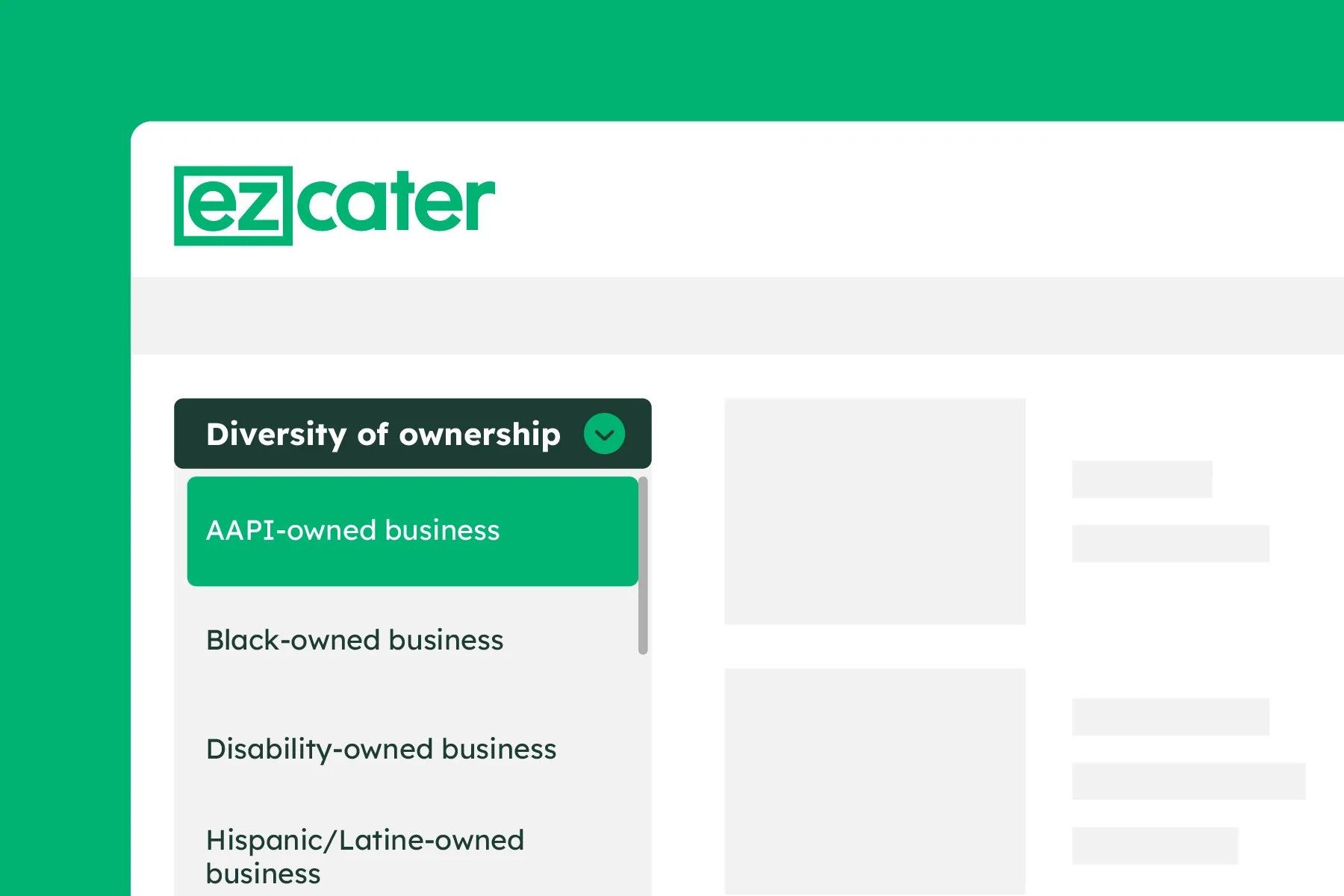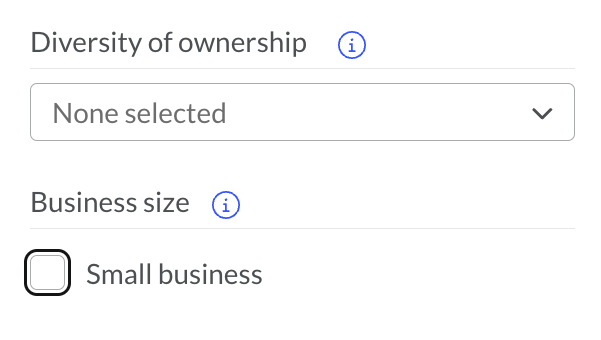Learn How ezCater’s Supplier Diversity Program Supports Restaurants Owned By Underrepresented Groups
- ezCater
- •
- 3 Min Read
- •
At ezCater, we’re committed to building a marketplace that aligns with the diversity of our community, customers, and catering partners.
Toward that end, ezCater is proud to announce its new supplier diversity program, designed to help identify, highlight, and amplify small businesses and restaurants owned by underrepresented groups.
Now, when customers are looking for food on ezCater, they can use a small business or “Diversity of Ownership” filter to discover great restaurants in their local area.
“We want to make food for work awesome — and to be awesome, food has to be inclusive,” says Diane Swint, Chief Revenue Officer, ezCater. “Our customers have continuously expressed their desire to have more visibility into restaurant ownership, and now they can.”

Spotlight on ezCater’s new “Diversity of Ownership” filter
ezCater’s platform is constantly evolving based on feedback from customers and market research. One of the top requests had been to create a filter to help businesses source local caterers and restaurants owned by members of underrepresented groups. Before this tool, customers had to conduct their own research through Yelp and various review sites, which was time-consuming.
So ezCater got to work in 2021, starting with data collection from its partner restaurants and caterers who were given the opportunity to self-identify as an underrepresented group or small business owner. This demographic data is now used to power the “Diversity of Ownership” filter that is now embedded into our marketplace. In addition to the filter, ezCater highlights demographic groups in search results throughout the year in celebration of various heritage months.
ezCater customers that are focused on DEI say they are finding a lot of value in the new platform features. “We choose to order from diverse-owned restaurants to represent the diversity of our own staff, celebrate different cultures, and support the local economy,” says Michele Barron-Resto, Workforce Planning Manager, Marcum LLP. “ezCater’s new initiatives make it much easier for us to continue embedding DEI into our food program.”
Learn more about ezCater’s supplier diversity program and how to incorporate it into your next food for work order.
How to use ezCater’s new filters
When searching for a caterer or restaurant for your next workplace meal, you’ll select your preferences as usual. Then, the “Diversity of Ownership” filter allows workplaces to seamlessly search and order from restaurants whose owner identifies as Asian-American, Pacific Islander, Black, Disabled, Hispanic, Latine, Indigenous American, LGBTQ, Middle Eastern, North African, a veteran or a woman.

The “Business Size” filter allows workplaces to discover and support small businesses.

New partnership to highlight Black-owned restaurants
As part of its supplier diversity program, ezCater announced a brand new partnership with EatOkra, which helps people discover Black-owned restaurants.
Together, the goal is to ensure that Black-owned restaurants are more visible and accessible to our customers to help advance equity in the restaurant industry.
ezCater has also become corporate members of the following organizations working to advance equity:
- National Minority Supplier Diversity Council (NMSDC)
- Center for Women Enterprises (CWE), a division of Women’s Business Enterprise National Council (WBENC)
- Disability:IN
- National Gay Lesbian Chamber of Commerce (NGLCC)
- National Veteran-Owned Business Development Council (NVBDC)
FAQs
What is supplier diversity?
Supplier diversity refers to programs that are intended to diversify an organization’s supply chain by ensuring adequate representation and support for small businesses and businesses owned by a member of an underrepresented group.
ezCater is promoting supplier diversity with three main objectives:
- Improving the visibility and discovery of restaurants on our marketplace that are owned by underrepresented groups and small businesses.
- Partnering with thought leaders working to advance equity in the restaurant industry and ensure ezCater is an attractive marketplace for all restaurants.
- Providing transparency by building custom reports for corporate accounts that break down restaurant ownership demographics.
Why is supplier diversity important?
Many ezCater customers have supplier diversity goals to allocate a portion of their spend to small business, including restaurants, owned by a member of an underrepresented group. ezCater seeks to support them by cultivating a diverse and easily searchable network of restaurants.
Adopting a diverse corporate catering program can extend the impact of your DEI program beyond just hiring and onboarding. Not only does featuring diverse foods help foster an appreciation of other cultures (and make for a delicious workplace meal), but workers who are connected with those cuisines can feel seen and appreciated.
Promoting Inclusivity, One Workplace Meal at a Time
Going forward, ezCater’s goal is to continue making it easier for businesses to place orders with restaurants owned by members of underrepresented groups, as well as small restaurants, while encouraging onsite work and driving employee engagement.
With better tools in place to discover these restaurants, as well as partnerships with organizations like EatOkra, ezCater is helping its customers serve up workplace inclusion. Ready to order? Use our filters to find restaurants that are owned by members of underrepresented groups and small businesses near you.









